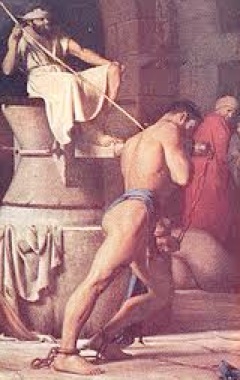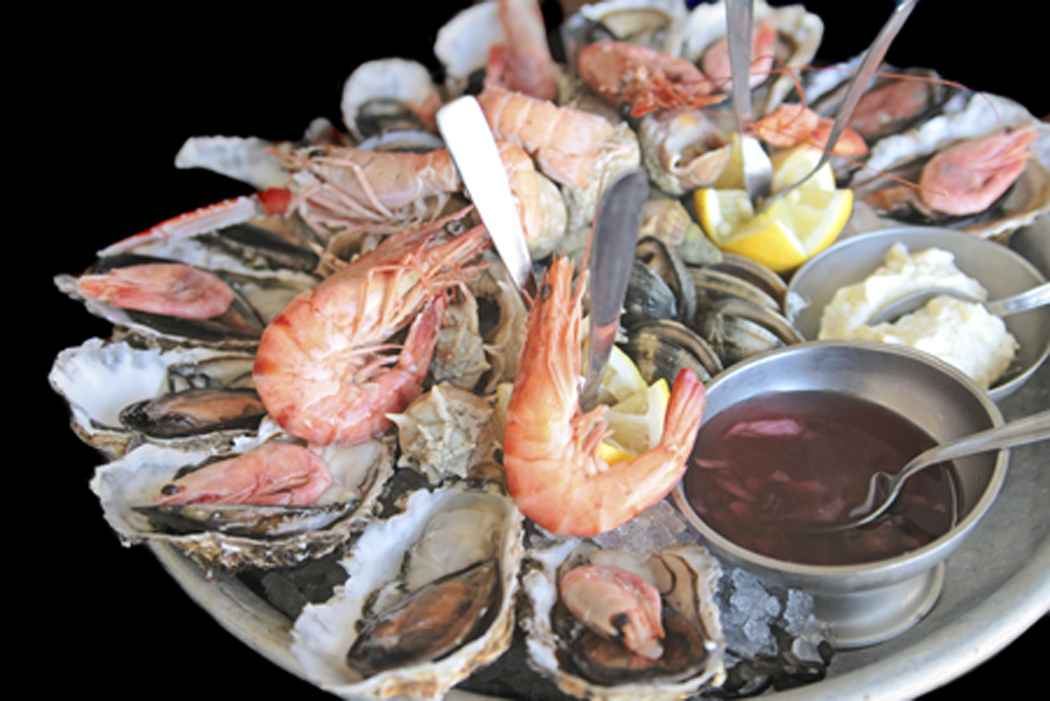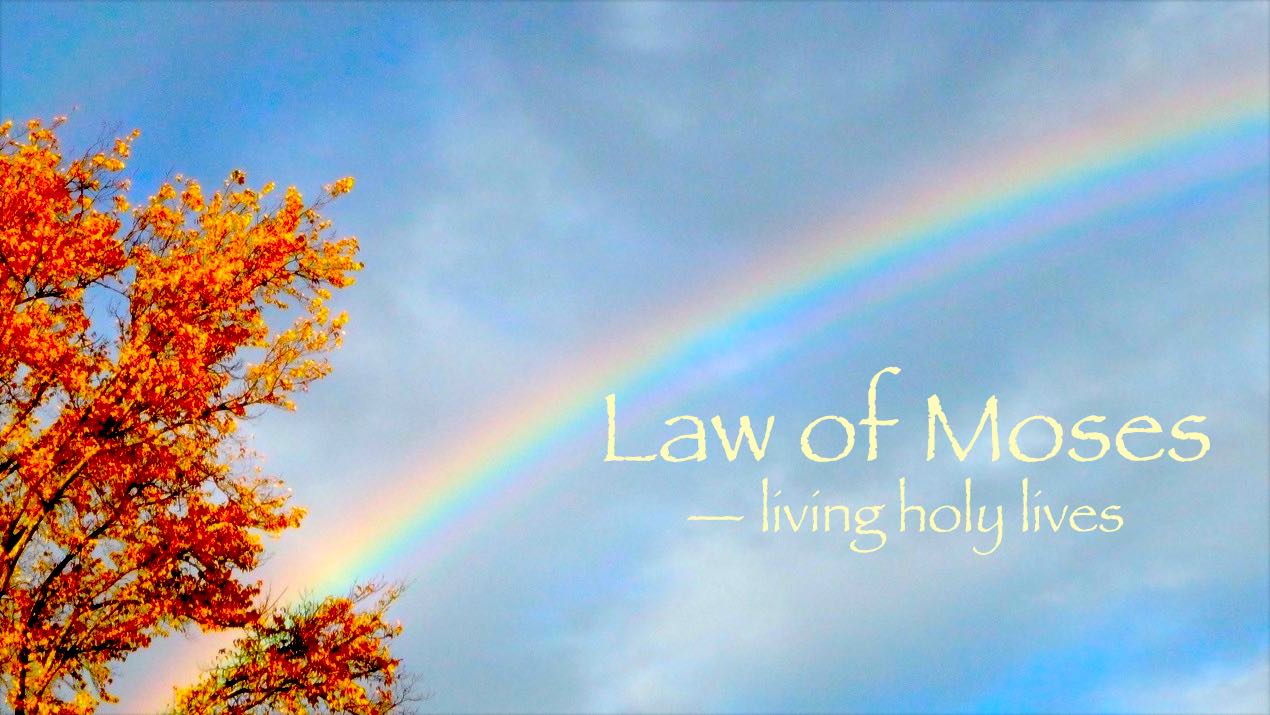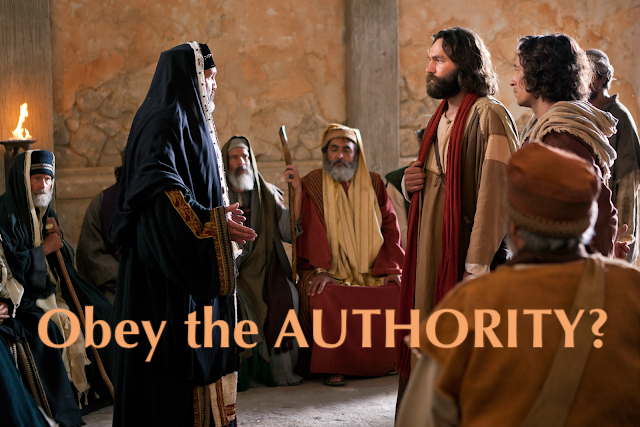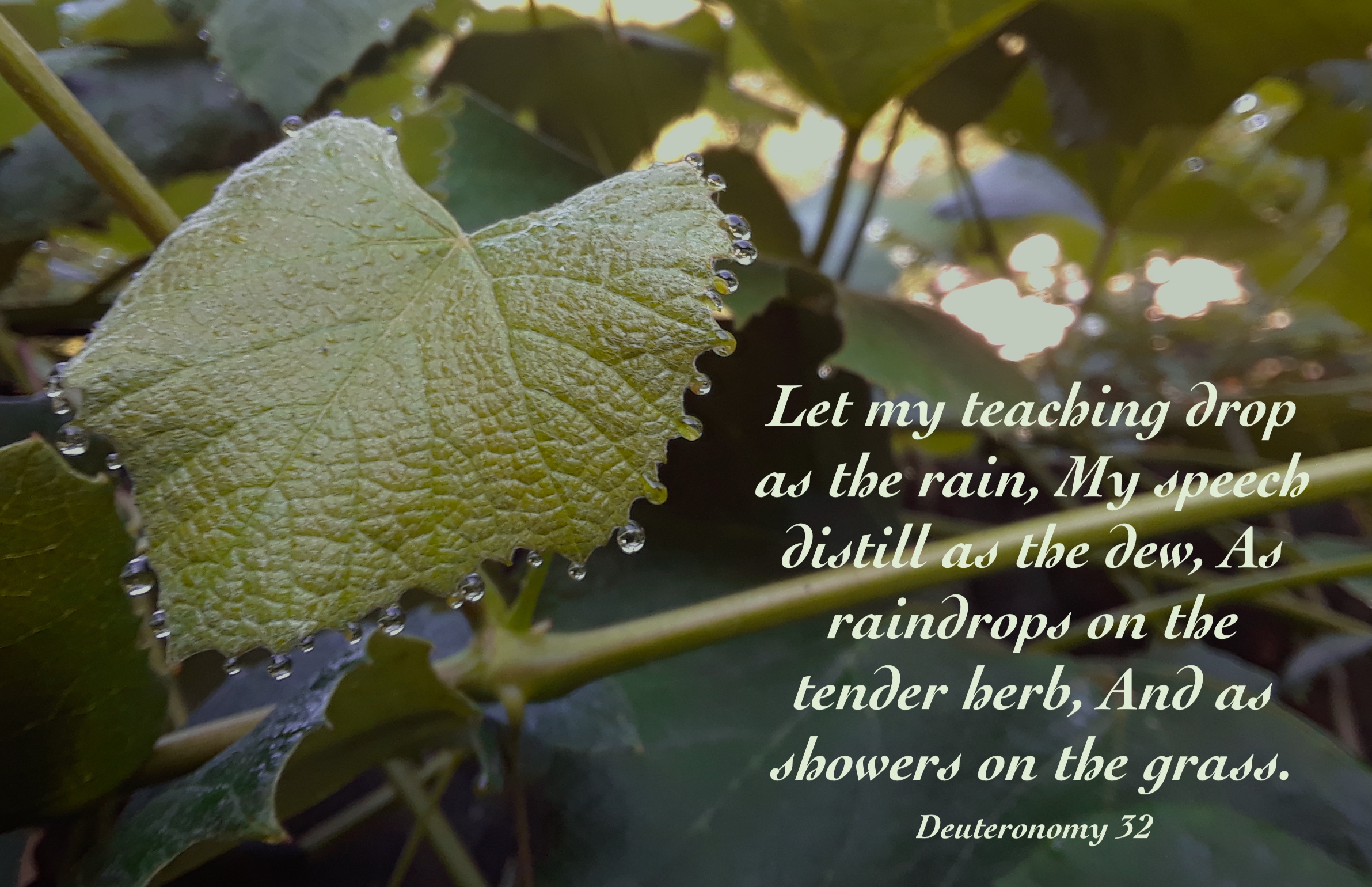A LIGHT IN DARKNESS
by Jean Jantzen
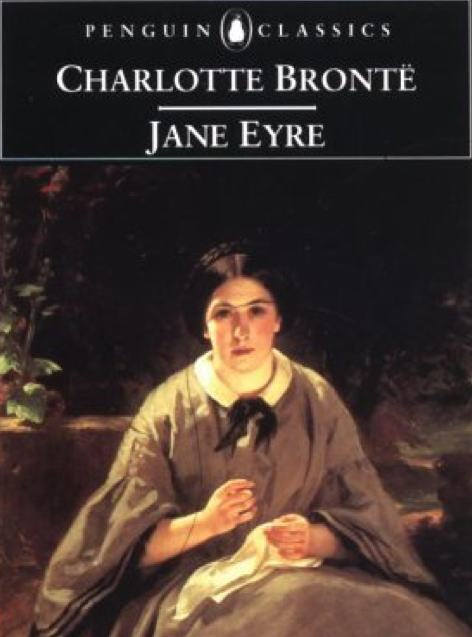 Are you a little light shining brightly in the darkness? Does your light shine brightly in your home, your school, your place of work, your community? Or, do you get easily discouraged believing that no-one notices your infinitely small light?
Are you a little light shining brightly in the darkness? Does your light shine brightly in your home, your school, your place of work, your community? Or, do you get easily discouraged believing that no-one notices your infinitely small light?
Sometimes over the years we may wonder, or ask ourselves, if our Christian example carries much weight, or influence, in changing the lives of others. And apparently, for the most part, the fruit of our labor does not manifest itself in great changes in another person’s lifestyle, be it a friend, a child, a spouse or a neighbor. Sometimes our example may be only a little grain of mustard seed that needs time to grow, develop and flourish.
Charlotte Bronte’s timeless masterpiece, Jane Eyre, one of the most widely read works of English literature was a novel that was made into a movie, that highlights the power of personal example. Jane who endured abusive treatment becomes an embittered angry little girl, but eventually is transformed into a wonderful young woman, her character traits almost beyond reproach. We might ask what or who influences Jane to make such drastic alterations in her way of thinking as she matures?
There is one particular character that has a powerful impact on Jane, a young pale girl named Helen. Ten-year-old Jane meets Helen in a charity school. You may have read the book or watched the movie and probably are asking “Who is Helen Burns?” I hardly remember her! She certainly does not play a very large role in the book and even less in the movie, in fact, we would call her role a bit part. Like ourselves, Helen’s opportunity to be a light is brief. It shines only for a moment before it is prematurely extinguished. The movie moguls concentrate on the love story aspect omitting Helen’s important role.
Helen is a Christ-like figure who metes out spiritual and moral advice of the kind found in the New Testament. She propagates love in the face of enemies, she teaches patient endurance, and she frowns upon vengeance and hate. Helen is only introduced into the novel briefly before her fleeting death scene. However, Jane’s short-lived contact with Helen exerts an enduring influence on the character development of the younger Jane that is nothing less than astounding.
The girls’ relationship lasts only for a few months and then Helen dies from semi-starvation and a neglected cold. We can view her death as a sacrifice because it teaches Jane a powerful lesson in faith. Her tombstone reads, “Resurgam,” or “I shall rise again,” confirming her status as a Christ figure, as well as foreshadowing Christ’s second coming. In what ways do we find Helen a light? Was it just her death?
The younger Jane cannot comprehend Helen’s passivity towards her oppressors:
“The only marked event of the afternoon was,
that I saw the girl with whom I had conversed in the verandah
dismissed in disgrace by Miss Scatcherd from a history class,
and sent to stand in the middle of the large schoolroom.
The punishment seemed to me in a high degree ignominious,
especially for so great a girl- she looked thirteen or upwards.
I expected she would show signs of great distress
and shame; but to my surprise she neither wept nor blushed:
composed, though grave, she stood, the central mark of all eyes.
‘How can she bear it so quietly-so firmly? I asked of myself.”
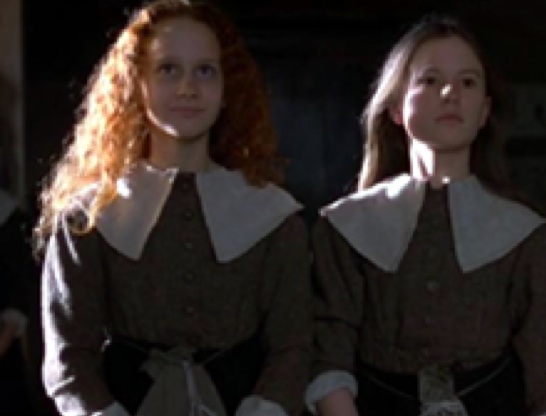 Jane’s physical reaction is immediate and explosive “my fingers quivered at this spectacle with a sentiment of unavailing and impotent anger.” Later, Jane tells Helen “If I were in your place I should dislike her; I should resist her; if she struck me with that rod, I should get it from her hands, I should break it under her nose.” Are we cheering Jane on? Would our children react like Jane? Let’s face it, the teacher is being mean and miserable to Helen and the teacher deserves retaliation, doesn’t she? Today how would we expect our children to react?
Jane’s physical reaction is immediate and explosive “my fingers quivered at this spectacle with a sentiment of unavailing and impotent anger.” Later, Jane tells Helen “If I were in your place I should dislike her; I should resist her; if she struck me with that rod, I should get it from her hands, I should break it under her nose.” Are we cheering Jane on? Would our children react like Jane? Let’s face it, the teacher is being mean and miserable to Helen and the teacher deserves retaliation, doesn’t she? Today how would we expect our children to react?
When they are alone, Helen, who is mature beyond her years, explains in a calm voice to Jane, that if she were to strike back at the teachers it would only result in her expulsion from the school and so she asks Jane what would that accomplish?
“It is far better to endure patiently a smart which nobody feels but yourself, than to commit a hasty action whose evil consequences will extend to all connected with you. Yet it would be your duty to bear it, if you could not avoid it: it is weak and silly of you to say you cannot bear what it is your fate to be required to bear.”
Helen continues by her exemplary conduct and her instruction to try to enlighten Jane to what she considers acceptable behavior.Helen sets Jane’s thinking back on course by admonishing her that “ it is not violence that best overcomes hate, nor vengeance that most certainly heals injury.” In their continuing conversation Jane over-emphasizes what others think of her. This leads Helen to educate Jane in another very important Christian concept. “If all the world hated you, and believed you wicked, while your own conscience approved you, and absolved you from guilt, you would not be without friends.” These intimate conversations provide the vehicle to introduce an entirely new perspective to Jane who at first meets all of Helen’s reasonings with resistance.
Perhaps on the surface, if we compare Helen with Jane we cannot but help admire Jane’s fighting spirit in comparison to Helen’s yielding, passivity. But the deeper question must be addressed—which of the two girls reveals real strength of character—Jane who fights back or Helen who meekly accepts and bears patiently what she cannot change? Those in authority may have rule over punishing Helen’s body, but they do not rule over Helen’s spirit, Helen does! She does not react to what they are doing; the teachers are not in control of her spirit, her actions, or her thoughts; she is in control. Jane, on the other hand, seems to us to be spunky, a real little fighter, but in reality she allows others to control her actions, her thoughts and her spirit, in other words, they control Jane’s reactions. What a wonderful Christian example Helen provides for Jane and for us.
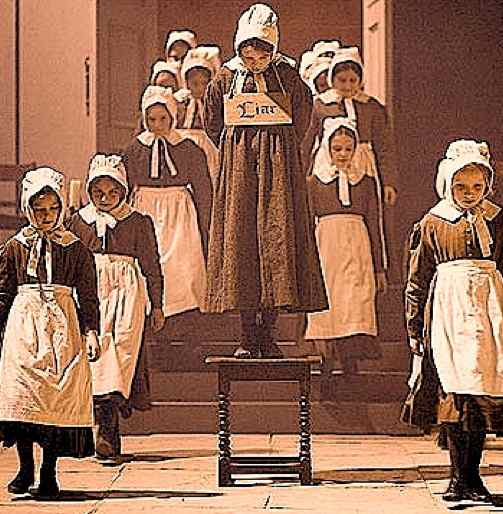 In the novel Helen does not judge others. Rather, Helen forces Jane to re-evaluate and analyze her situation, because Helen realizes that it is through this inner exploration that Jane will be healed of her animosity and resentment towards others over past injustices.
In the novel Helen does not judge others. Rather, Helen forces Jane to re-evaluate and analyze her situation, because Helen realizes that it is through this inner exploration that Jane will be healed of her animosity and resentment towards others over past injustices.
As we can see, Helen plays a very important part in Jane’s life. Without Helen’s positive influence, Jane would most assuredly have continued to take out her own frustrations by lashing out at others. It is through the loving example of Helen Burns, that Jane’s psyche is able to begin the process of healing. Helen not only gives Jane a positive example of what it is to be a loving, yet focused Christian, but also gives Jane an alternative to the type of hypocritical religiosity she was exposed to as a child within the Reed household. Jane also learns through Helen’s example, not to take the easy route, striking out blindly, but to take the right route according to her own conscience and make difficult decisions regardless of the consequences to herself. Helen’s inner strength, and reliance on God, allow her to make right decisions according to her own conscience regardless of the consequences even to the point of pain or punishment. In other words, Helen educates Jane on how to use her inner strength or motivating force that is the result of ones’ belief in God.
Helen’s part is drastically diminished in the movie so none of these very important concepts are brought to light. Jane learns much from Helen’s inner strength and loving, forgiving Christian example – her light. It is this strength Jane needs to overcome and rise above the trials of her childhood. It is this strength that she needs in order to face up to trails and tribulations of this life. Helen, regardless of our first impressions was a fighter, displaying to Jane an inner strength to be prized above all else.
Helen admits she doesn’t have the “ qualities or talents” to deal with all the trials of this physical world especially in her weakened condition. But she does leave a lasting legacy to Jane who does. As an adult, Jane no longer strikes out in anger as a way of solving her problems or trials that come her way, nor does she take the path of least resistance. Jane is still a fighter but now it is an inner struggle that Jane is determined to win at all cost, come what may.
Just as Helen’s Christian example truly had a lasting effect on Jane, so we too, should be inspired to be godly lights. Even if the effect of our light is not apparent immediately we can find comfort in knowing in time our light will have profound effects on others. That is why we are admonished, “In the same way, let your light shine before men, that they may see your good deeds and praise your Father in heaven.” Matthew 5:16
